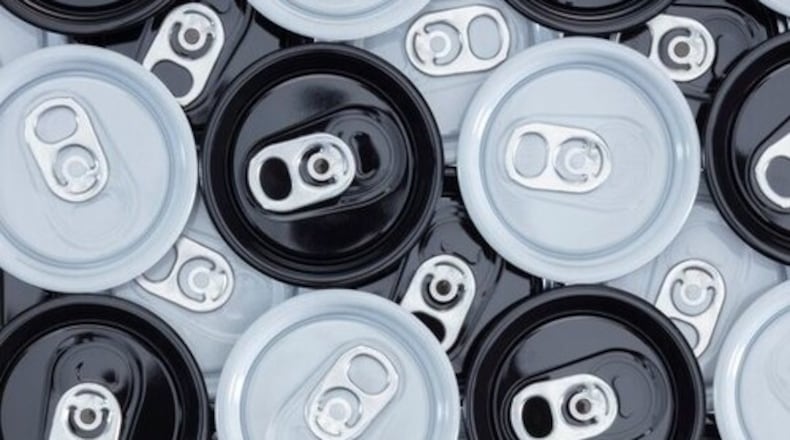The goal is a “unialloy” design enabling beverage can ends to be made from up to 99% recycled content.
Typically, the body of an aluminum can is made from a different alloy than the can top or end.
Novelis and DRT both work in metal packaging. Novelis focuses on high-recycled-content, low-carbon flat rolled aluminum sheet products. The company said it has an average of about 85% recycled content in its beverage packaging globally.
In Dayton, DRT provides high-speed manufacturing equipment for beverage can ends, capable of producing up to 3,000 ends per minute.
“Over the decades, DRT’s global equipment footprint has played a critical role in shaping the beverage packaging market,” the companies said in their release.
DRT, once better known as Dayton Reliable Tool and Manufacturing, has been producing in Dayton since 1949.
During the pandemic, Mill Rock Capital acquired DRT Holdings. The company is helmed today by Rob Cohen, a Middletown native.
“By linking their technical expertise, Novelis and DRT will work together to optimize the design, conversion process and sustainability attributes of beverage can ends made from the same alloy as the can body,” the companies said.
“DRT has a long-standing legacy of innovation, having helped bring the easy-open end to market, and today we’re building on that legacy with a clear focus on sustainability and smart engineering,” Brandon Rinehart, vice president of innovation at DRT, said in a statement.
“Novelis is committed to accelerating the transition to a more circular aluminum beverage packaging industry, and this partnership with DRT is a key step in that journey,” said Greg Schlicht, senior vice president and chief commercial officer at Novelis.
DRT’s corporate headquarters is 618 Greenmount Ave., a property that crosses the Dayton-Kettering municipal boundary, surrounded by leafy streets and a recreation trail that links the University of Dayton campus, Dayton’s Patterson Park neighborhood and north Kettering.
About the Author


